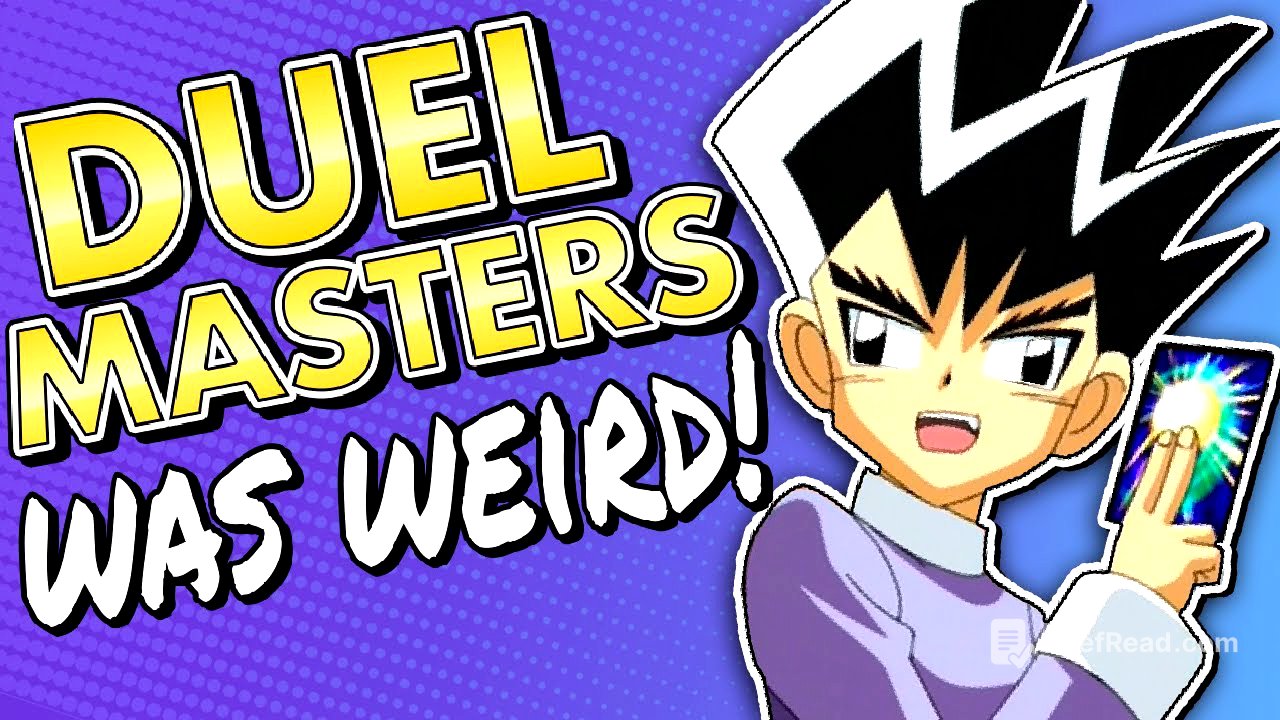TLDR;
This video explores the history and shortcomings of the Duel Masters trading card game in the United States, comparing it to its contemporaries like Magic the Gathering and Yu-Gi-Oh!. It examines the game's initial purpose as a gateway to Magic for Japanese audiences, its failure to gain traction in the US due to poor marketing, rule inconsistencies, and a poorly executed anime adaptation. The video also touches on a PlayStation 2 game adaptation and a later rebranding attempt as Kaijudo, ultimately concluding that while Duel Masters had potential, it was held back by its marketing and execution in the US market.
- Duel Masters was originally created to introduce Magic the Gathering to a Japanese audience.
- The game failed in the US due to a combination of factors, including poor marketing, inconsistent rules, and a lackluster anime adaptation.
- Despite its failure in the US, Duel Masters remains popular in Japan.
Intro [0:00]
The video starts with a reminder to viewers to enable notifications and follow the creator on social media to stay updated on new content. The main topic is introduced: the phenomenon of licensed trading card games in the 2000s, particularly focusing on Duel Masters and addressing the common perception of it being a Yu-Gi-Oh! clone. The creator clarifies that Duel Masters was initially co-produced by Wizards of the Coast as a manga to promote Magic the Gathering in Japan, with early manga chapters even featuring characters playing Magic.
Duel Masters Origins and Gameplay [2:10]
The video reviews the basic gameplay of Duel Masters using a two-player starter set. The game shares similarities with Magic the Gathering, but uses "shields" instead of health points. Each player starts with five shields and five cards in hand. Cards can be used as mana, spells, or creatures, offering strategic flexibility. Mana is built up over turns to play more powerful cards. The video explains the combat mechanics, where creatures battle based on power levels, and players must decide whether to attack opponent's creatures, shields, or focus on defense. Duel Masters is presented as a simplified version of Magic the Gathering, making it easier to learn.
US Failure and Anime Comparison [4:25]
The video discusses the reasons behind Duel Masters' failure in the United States, despite its success in Japan as a more accessible version of Magic the Gathering. The US version suffered from fewer rules and restrictions, leading to overpowered decks and a broken meta. The lack of oversight from Wizards of the Coast resulted in a limited number of competitively viable decks. The video also suggests that the anime adaptation, which aired on Toonami, was aimed at the wrong demographic, as teenagers were more likely to be interested in Magic the Gathering. A comparison is made between the first episodes of the Yu-Gi-Oh! and Duel Masters anime, highlighting Yu-Gi-Oh!'s more effective introduction to its card game mechanics. The Duel Masters anime is criticized for its frantic pacing and poor audio mixing, failing to properly showcase the game.
PlayStation 2 Adaptation and Rebranding [8:29]
The video briefly examines the PlayStation 2 adaptation of Duel Masters, noting its poor user interface but also highlighting the charming flash-animated cutscenes. The game, like the anime, failed to effectively the card game. The video then touches on the attempt to rebrand Duel Masters as Kaijudo in 2012 with a new American-produced cartoon, which also failed to gain popularity and ended in 2014. Despite its failures in the US, Duel Masters remains popular in Japan, evolving into its own unique game separate from Magic the Gathering. The video concludes that Duel Masters had potential but struggled to differentiate itself in the US market due to marketing challenges and the established presence of Magic the Gathering.
Sponsor and Outro [10:22]
The video promotes Verb, a streaming platform, offering a 30-day free trial to viewers who use the provided link. The creator highlights Verb's diverse content, including classic Nickelodeon shows, and its offline sync feature. The video concludes with a call to action, encouraging viewers to like, share, and comment on the video, as well as subscribe and follow the creator on social media.









